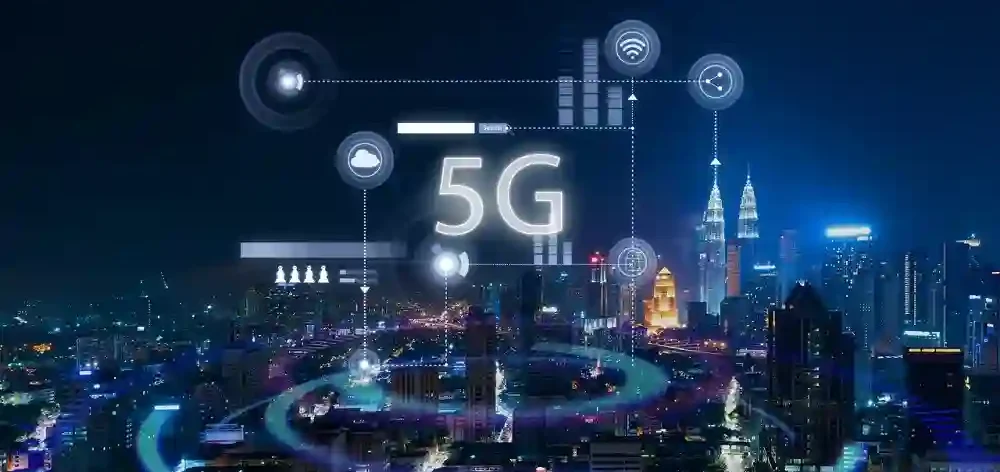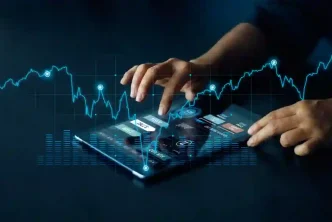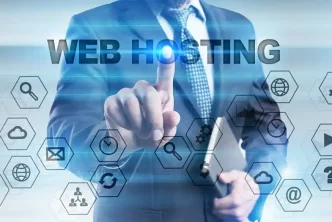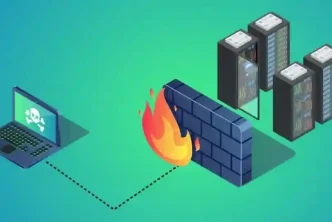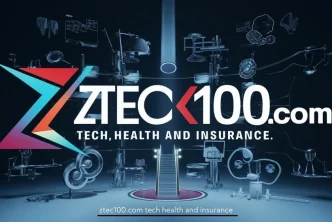The advent of 5G technology is set to revolutionize how we connect with each other, how we use the internet, and how we experience the digital world. 5G, the fifth generation of wireless technology, promises faster internet speeds, lower latency, and more reliable connectivity than ever before. While we may still be in the early stages of its rollout, the potential impact of 5G on our daily lives is vast and far-reaching.
In this article, we will explore the
impact of 5G on everyday life, from its influence on communication and entertainment to its effects on industries such as healthcare, transportation, and smart cities. We will also discuss some of the potential challenges and concerns that come with this new technology, and how it could shape the future of our world.
- What is 5G?
Before diving into the impact of 5G on everyday life, it’s important to understand what 5G actually is. 5G stands for “fifth generation” and is the latest evolution in mobile network technology, succeeding 4G LTE (Long-Term Evolution). It promises to deliver a significant boost in speed, reliability, and efficiency compared to previous generations.
Key Features of 5G
- Faster Speeds: 5G is expected to offer download speeds up to 100 times faster than 4G, enabling quicker access to content, faster file transfers, and improved streaming experiences.
- Lower Latency: 5G drastically reduces latency (the delay between sending and receiving data), potentially down to one millisecond. This improvement is crucial for applications requiring real-time communication, such as remote surgery or gaming.
- Higher Capacity: 5G networks can handle a larger number of connected devices simultaneously, making it ideal for dense urban areas and the growing demand for IoT (Internet of Things) devices.
- Enhanced Connectivity: 5G is designed to provide more reliable and stable connections, even in crowded areas or at the edges of a network.
As 5G continues to roll out across the globe, we will begin to see its transformative effects on multiple facets of everyday life.
- 5G and Communication: A New Era of Connectivity
One of the most significant ways 5G will impact everyday life is through
improving communication. Whether it’s video calling, instant messaging, or voice interactions, 5G will drastically enhance how we connect with one another.
Faster Video Calls and Streaming
With the enhanced bandwidth and lower latency offered by 5G, video calls will become much smoother and higher quality. Whether you are participating in a business meeting, catching up with family, or attending a virtual event, 5G ensures that video calls will have fewer disruptions, higher resolution, and real-time interaction without buffering or lag.
Additionally, streaming services like Netflix, YouTube, and gaming platforms will benefit from 5G’s faster speeds. 5G will allow users to stream high-definition content in real-time, including 4K and even 8K video, without needing to worry about long buffering times or poor video quality.
Real-Time Communication and Social Media
Social media and communication apps will also be transformed by 5G. Platforms like Instagram, Snapchat, and TikTok, which are already highly reliant on video and multimedia content, will be able to offer even more immersive experiences. With 5G, it will be easier to upload and share high-quality content instantly, without worrying about long loading times or interruptions.
Moreover, the improved speeds and latency will make features like augmented reality (AR) and virtual reality (VR) more accessible for everyday users. For example, AR filters on social media platforms or virtual meetups will become even more seamless and real-time with 5G’s capabilities.
- Entertainment: A Revolution in Streaming and Gaming
As internet speeds increase and latency drops, 5G will have a transformative effect on the entertainment industry, particularly in the areas of
streaming and
gaming.
Ultra-High Definition Content Streaming
With 5G, streaming services will be able to deliver
ultra-high-definition content such as 4K, 8K, and even 3D video with virtually no buffering. This means that users can enjoy high-quality video and audio without the need for fast internet connections or extensive data usage. Additionally, with 5G’s ability to handle more devices at once, users will experience less lag or downtime during peak times.
5G will also make it easier for platforms to introduce
immersive experiences, such as virtual reality (VR) or augmented reality (AR), on a mass scale. Streaming VR content in real-time or experiencing interactive 3D entertainment will become more accessible, with the ability to experience live events or concerts in a fully immersive way.
Cloud Gaming
One of the most exciting prospects of 5G is its potential to
revolutionize gaming. Cloud gaming services like Google Stadia, Xbox Cloud Gaming, and NVIDIA GeForce Now will benefit from 5G’s reduced latency and high-speed data transfer. Players will be able to stream high-quality games without the need for expensive hardware, as 5G will allow for real-time rendering and high-definition graphics with little to no lag. This means that gamers can enjoy console-quality games on mobile devices, laptops, or even smart TVs without needing specialized equipment.
5G’s impact on gaming isn’t just about better graphics or faster download speeds; it also opens the door for more
interactive and social gaming experiences. With its ability to handle a large number of connected devices at once, 5G will make it possible for users to participate in large-scale, multiplayer games that feel more connected and real-time, creating a more immersive experience.
- 5G and Healthcare: A New Frontier in Medical Technology
The healthcare industry stands to benefit greatly from 5G’s capabilities. With its low latency, high speed, and ability to handle numerous connected devices, 5G will improve
healthcare services, making them more accessible, efficient, and effective.
Remote Healthcare and Telemedicine
One of the most promising uses of 5G in healthcare is
telemedicine. With faster internet speeds and lower latency, doctors will be able to conduct remote consultations and diagnose patients in real-time, even from different countries. 5G will make it possible for doctors to provide high-quality video consultations and transmit medical images and data without delay. This can help reduce the strain on healthcare systems and provide access to medical services in rural or underserved areas.
Remote Surgery and Robotics
Another groundbreaking application of 5G in healthcare is
remote surgery. 5G’s low latency makes it possible for surgeons to perform operations remotely using robotic systems. This technology could allow for life-saving procedures to be performed by the world’s best surgeons, even if they are thousands of miles away from the patient. The ability to transmit high-resolution images, as well as receive real-time feedback from surgical instruments, will make surgeries more precise and less risky.
Wearable Health Devices
5G will also enhance the capabilities of
wearable health devices, such as smartwatches and fitness trackers. These devices will be able to collect and transmit data in real-time, allowing healthcare providers to monitor patients’ conditions continuously and respond immediately if needed. This real-time data transmission can be especially important for patients with chronic conditions like heart disease or diabetes, where timely intervention can be critical.
- 5G and Transportation: Smart Cars and Safer Roads
The transportation industry is another area where 5G is set to make a significant impact. From
autonomous vehicles to
traffic management, 5G will bring improvements in speed, safety, and efficiency.
Autonomous Vehicles
Self-driving cars rely heavily on real-time data from sensors, cameras, and other devices to make decisions on the road. With 5G’s ultra-low latency and high-speed capabilities, autonomous vehicles will be able to communicate with each other and their surroundings more efficiently. This improved connectivity will allow self-driving cars to react faster to changing road conditions, reducing the likelihood of accidents.
Traffic Management and Smart Cities
5G will also play a role in the development of
smart cities. By connecting traffic lights, vehicles, and infrastructure, 5G will enable more efficient traffic flow, reduce congestion, and improve public transportation services. Smart traffic management systems will allow for real-time monitoring of traffic conditions, helping to prevent accidents and optimize the flow of traffic.
Connected Public Transportation
In addition to self-driving cars, 5G will make public transportation more connected. Buses, trains, and subways will be able to communicate with each other, reducing delays and improving the overall efficiency of public transportation systems. Passengers will also benefit from real-time updates on schedules, delays, and seat availability, improving the overall commuter experience.
- Challenges and Concerns
While the potential benefits of 5G are exciting, there are several
challenges and concerns associated with the technology.
Security and Privacy
With the increased connectivity and reliance on data that 5G brings, concerns over
cybersecurity and
privacy are at the forefront. As more devices become connected, the risk of data breaches and cyberattacks increases. Securing personal data, especially in industries like healthcare, is crucial for protecting individuals’ privacy and safety.
Cost and Accessibility
While 5G has the potential to provide widespread benefits, the
cost of rolling out 5G infrastructure may create barriers to its adoption, particularly in rural or low-income areas. Ensuring that 5G is accessible to everyone, regardless of location or socioeconomic status, will be key to maximizing its potential.
Health Concerns
There are also concerns about the potential
health risks of 5G technology. Some studies have raised questions about the long-term effects of increased exposure to electromagnetic fields (EMFs) associated with 5G networks. While most experts agree that 5G is safe, further research is needed to fully understand its impact on human health.
Conclusion
The impact of 5G on everyday life is vast and transformative. From improving communication and entertainment to revolutionizing healthcare, transportation, and industries worldwide, 5G has the potential to change how we live, work, and interact with the world around us. However, the rollout of 5G also presents challenges that need to be addressed, including security, accessibility, and health concerns.
As 5G continues to evolve and expand, its influence will grow, shaping the future in ways we are just beginning to imagine. The key to maximizing its benefits lies in understanding its potential, addressing its challenges, and ensuring that this powerful technology is used responsibly for the greater good.
Read More latest Posts

